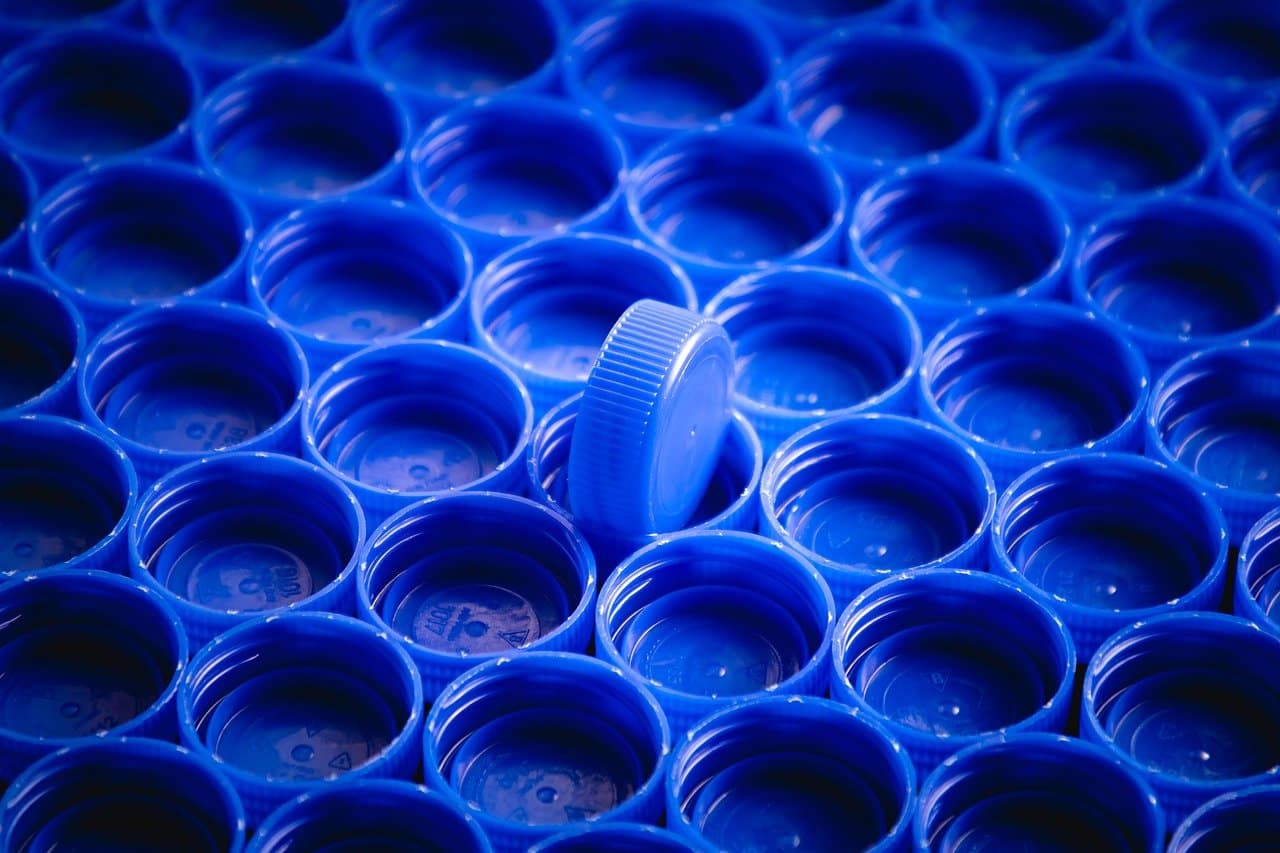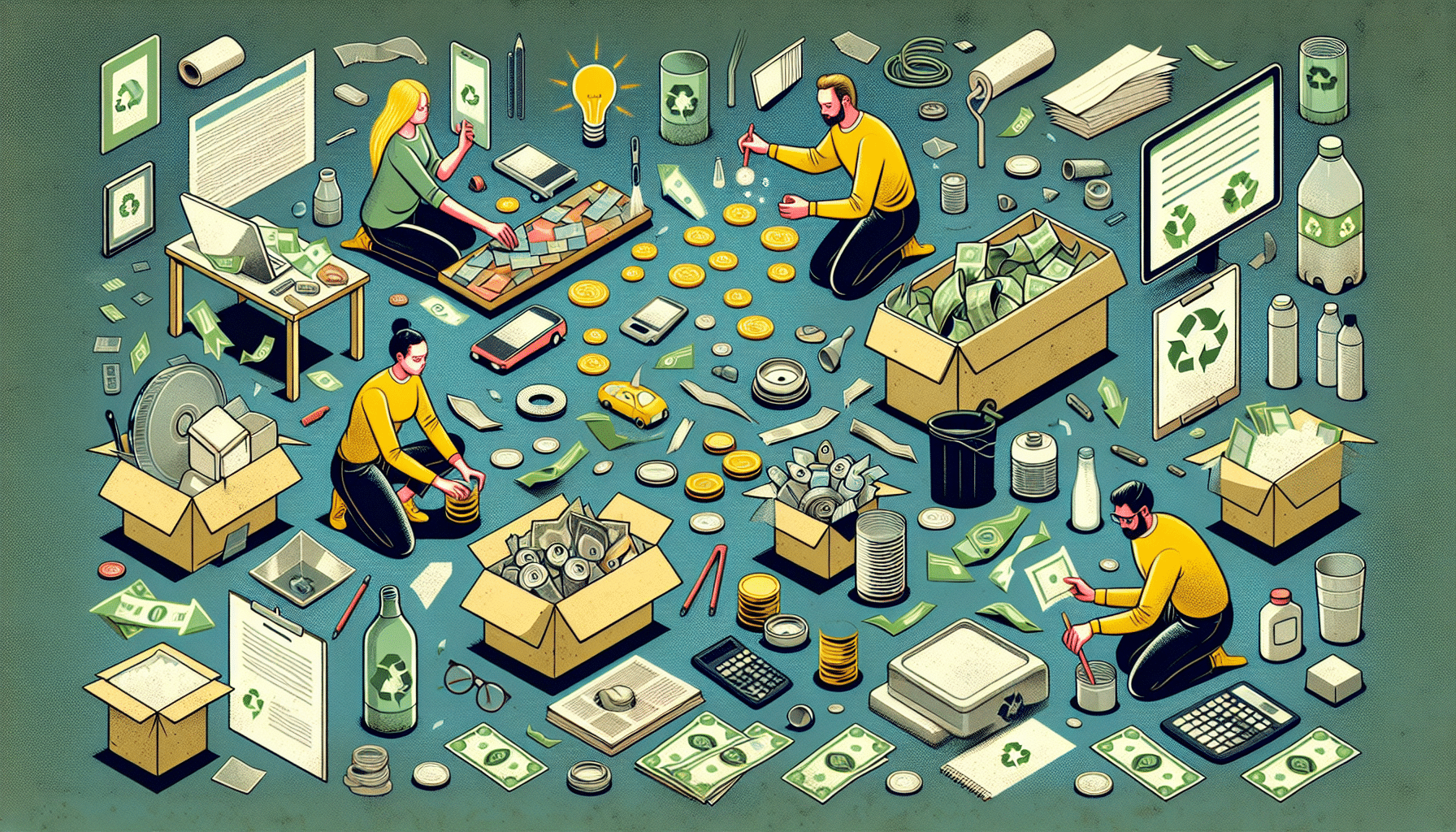In "How to Recycle Everyday Items for Money," discover the hidden potential lying within your household clutter. Did you know that everyday items can be recycled and turned into cold, hard cash? It's true! Recycling centers and collection points are waiting to accept your unwanted items, but preparation is key. Following specifications for the recyclables ensures they can be properly processed and reused. From scrap metal to ink cartridges, cellphones to used boxes, a surprising range of items can be recycled for money. Best of all, various companies and programs offer incentives for your efforts. So why not turn your trash into treasure while helping the planet along the way? Get ready to recycle and reap the rewards!
Scrap Metal
Scrap metal recycling is a great way to not only help the environment but also make some money. There are different types of scrap metal that can be recycled, including aluminum, copper, steel, and brass. Each type of metal has its own unique properties and uses, making it important to understand the different types of scrap metal available for recycling.
Types of Scrap Metal
-
Aluminum: Aluminum is a lightweight metal that is commonly used for soda cans, window frames, and car parts. It is highly recyclable and can be melted down to create new products.
-
Copper: Copper is a valuable metal that is often used in electrical wiring, pipes, and jewelry. It is highly sought after in the recycling industry due to its high conductivity and durability.
-
Steel: Steel is one of the most widely recycled materials in the world. It is used in construction, appliances, and automotive parts. Recycling steel reduces the need for raw materials and helps conserve energy.
-
Brass: Brass is a combination of copper and zinc and is commonly used in plumbing fixtures, musical instruments, and decorative items. Recycling brass helps conserve natural resources and reduces the need for mining.
Preparing Scrap Metal for Recycling
Before bringing your scrap metal to a recycling center, it is important to prepare it properly. This includes removing any non-metal parts, such as plastic or rubber, as well as cleaning the metal to remove any dirt or contaminants. Sorting the different types of scrap metal into separate containers will make the recycling process more efficient.

This image is property of pixabay.com.
Finding Scrap Metal Buyers
There are various ways to find scrap metal buyers in your area. One option is to search online directories or use recycling apps that connect sellers with buyers. You can also contact local recycling centers, scrap metal dealers, or even scrap metal yards. These buyers will inspect and weigh your scrap metal before offering you a price based on the current market value.
Benefits of Recycling Scrap Metal
Recycling scrap metal offers several benefits, both for the environment and for individuals looking to make some extra money. By recycling scrap metal, you are reducing the need for mining and the extraction of raw materials, which helps conserve natural resources. Additionally, recycling metal requires less energy compared to producing new metal from ore. Recycling scrap metal also helps reduce greenhouse gas emissions and saves landfill space. From a financial perspective, recycling scrap metal allows you to earn money by selling it to scrap metal buyers.
Overall, recycling scrap metal is a simple and effective way to contribute to a more sustainable future while also reaping financial benefits.
Bottles and Cans
Recycling bottles and cans is another excellent way to contribute to environmental sustainability and make some money. Different types of bottles and cans can be recycled, ranging from plastic bottles to aluminum cans. Understanding the various types and their recycling processes can help you become a responsible and informed recycler.

This image is property of pixabay.com.
Types of Bottles and Cans for Recycling
-
Plastic Bottles: Plastic bottles are widely used for beverages, cleaning products, and personal care items. They are usually made of polyethylene terephthalate (PET) or high-density polyethylene (HDPE). Recycling plastic bottles helps conserve resources and reduces the amount of plastic waste in landfills.
-
Glass Bottles and Jars: Glass bottles and jars are commonly used for food and beverage packaging. They are 100% recyclable and can be recycled indefinitely without losing their quality. Recycling glass reduces the demand for raw materials and saves energy compared to producing new glass.
-
Aluminum Cans: Aluminum cans are used for beverages like soda and beer. They are lightweight, durable, and highly recyclable. Recycling aluminum cans saves energy and reduces greenhouse gas emissions.
-
Steel Cans: Steel cans are widely used for food and beverage packaging. They are recyclable and can be melted down to create new cans or other steel products. Recycling steel cans helps conserve resources and reduces the need for mining.
Container Deposit Programs
Container deposit programs, also known as bottle return programs, are implemented in many states and countries around the world. These programs require consumers to pay a deposit when purchasing beverages in certain types of containers, such as glass bottles or aluminum cans. When the containers are returned to designated collection points, the deposit is refunded. Container deposit programs incentivize recycling by providing a monetary incentive for consumers.

This image is property of pixabay.com.
Benefits of Recycling Bottles and Cans
Recycling bottles and cans offers numerous benefits. Firstly, it conserves natural resources by reducing the need for raw materials. Recycling these items also saves energy and reduces greenhouse gas emissions compared to producing new products. Additionally, recycling bottles and cans helps reduce litter and keeps them out of landfills or oceans, where they can harm wildlife. From a financial standpoint, participating in bottle and can recycling programs allows you to earn money by returning containers for deposit refunds.
Finding Recycling Centers
To recycle bottles and cans, it is essential to find recycling centers or collection points in your area. Many communities have curbside recycling programs, where you can place your recyclables in designated bins for collection. Alternatively, you can search online for recycling centers or collection points near you. These centers will accept a wide range of recyclable materials, including bottles and cans, and ensure they are properly processed for recycling.
By recycling bottles and cans, you are making a positive impact on the environment while also benefiting financially. Remember to always follow the preparation guidelines provided by recycling centers to ensure your items are accepted and properly recycled.
(More sections to be written)


